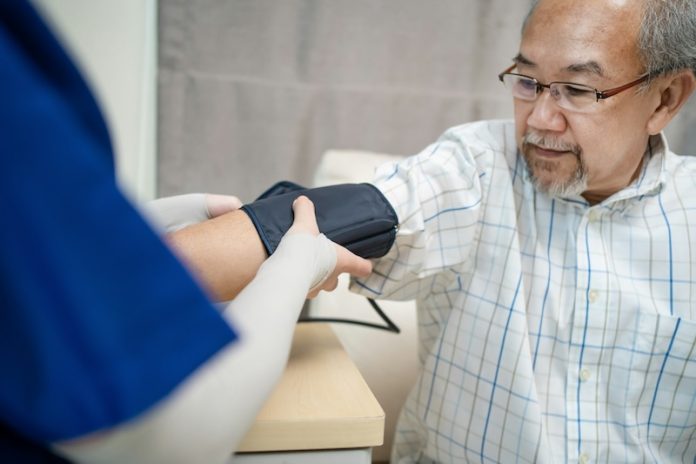
A recent study from Yale University has revealed a worrying trend: over the last 20 years, more and more older Americans have been hospitalized due to sudden and dangerous spikes in blood pressure. This serious condition, known as acute hypertension, can lead to life-threatening problems like heart attacks and strokes if not treated immediately.
Despite national efforts to raise awareness and improve blood pressure control, the number of hospitalizations has actually gone up. The researchers looked at data from Medicare, focusing on people aged 65 and older.
They found that between 1999 and 2019, hospitalizations for severe blood pressure emergencies more than doubled. On average, the rate rose by 5.6% every year.
The numbers were even more troubling for Black Americans, who saw a 6% yearly increase. By the years 2017 to 2019, they were three times more likely to be hospitalized for sudden blood pressure spikes than other groups.
The study also found that the highest hospitalization rates were in the southern United States, an area often referred to as the “stroke belt” because of its long history of high stroke rates and related health issues.
These findings show that the problem of high blood pressure is far from solved. Blood pressure is considered high when the top number (systolic pressure) is 130 mm Hg or higher, or the bottom number (diastolic pressure) is 80 mm Hg or higher.
When blood pressure rises sharply and suddenly, it can damage vital organs, especially the heart and brain. Quick treatment is needed to avoid serious outcomes.
Even though public health programs have been in place to control blood pressure, they don’t seem to be reaching everyone equally. The study suggests that some communities, particularly Black Americans and people living in the South, face bigger challenges.
These may include higher stress levels, less access to good healthcare, and more obstacles to living a healthy lifestyle.
Poor diet, lack of physical activity, and chronic stress are well-known causes of high blood pressure. Older adults may also deal with other medical conditions that make it harder to control their blood pressure. For Black Americans, long-standing inequalities in healthcare access and other social factors may be playing a big role in these alarming numbers.
The study’s lead author, Dr. Yuan Lu, emphasized the need for stronger and more focused efforts to help the people most at risk. This could include better blood pressure education, easier access to care, and programs that support healthier living, especially in communities where hospitalizations are highest.
Most importantly, the study is a reminder that regular blood pressure checks, medication when needed, and simple lifestyle changes—like eating healthier, moving more, and managing stress—can help prevent dangerous spikes.
The research, published in the journal Circulation, highlights an urgent public health problem that needs more attention and action to protect older Americans, especially those in vulnerable communities.
If you care about blood pressure, please read studies about unhealthy habits that could increase high blood pressure risk, and eating eggs in a healthy diet may reduce risks of diabetes, high blood pressure.
For more information about blood pressure, please see recent studies that early time-restricted eating could help improve blood pressure, and results showing 12 foods that lower blood pressure.
Copyright © 2025 Knowridge Science Report. All rights reserved.



